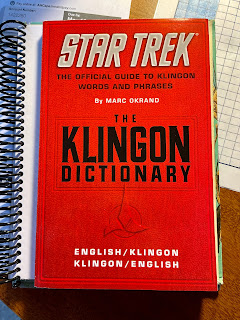What Does It Mean to Be Human/Developing Technology

What concerns does Star Trek raise about the relationship between humans and technology? How do these concerns relate to current discussions about technology today? Star Trek raises concerns about the human/technology relationship in many of its episodes and films. Many of the issues raised, such as the potential "personhood" of artificial intelligences (The Doctor on Voyager and Data on TNG giving us most of these storylines) or the ethics around genetic manipulation and its slippery slope to eugenics, have applications today. I think the most fundamental Star Trek story around humans and technology, though, is in the film Star Trek: Insurrection . The film opens with a soothing montage of happy, relaxed, playful (but busy) people, creating, cooking, and working the land. The first time I saw the film, this sequence provoked a physical relaxation response in me. As the narrative unfolds, we learn that the Ba'ku do, in fact, possess technological capabilities b





